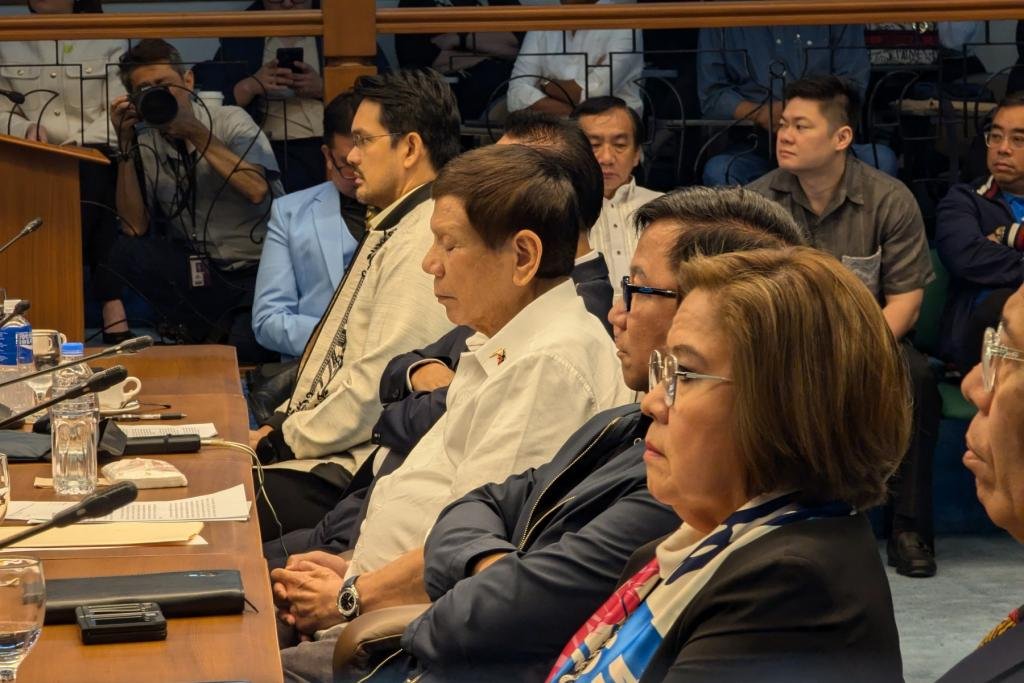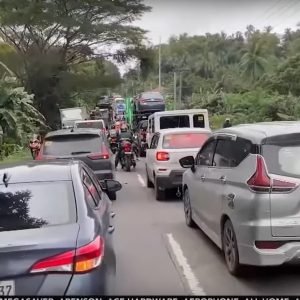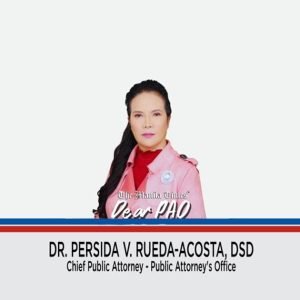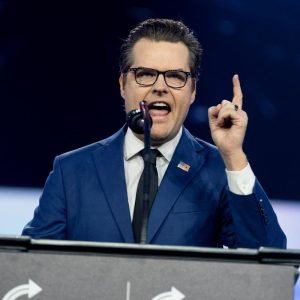
An unremorseful former President Rodrigo R. Duterte stood by his conviction before the Senate hearing last Monday that the war on drugs during his administration was necessary and that he will take full responsibility for it.
“Do not question my policies because I offer no apologies, no excuses. I did what I had to do and whether you believe it or not, I did it for my country,” said in a prepared speech during the hearing of the Blue Ribbon Committee on the Philippine War on Illegal drugs.
Duterte said the aggressive campaign was necessary to stop the spread of illegal drugs, which he said continues to destroy the lives of many Filipinos.
“The war on illegal drugs is not about killing people, it is about protecting the innocent and the defenseless,” he said. The former President pointed out that drug-related crimes are once again rampant after his term.
“It is unfortunate that drug-related crimes are on the rise again. Every day you can read about children being raped, people getting killed and robbed. And just recently a drug den was raided within the Malacañang complex. This clearly manifests that the purveyors of this menace are back in business,” Duterte said.
He reiterated that he ordered the police to defend themselves by shooting drug suspects, who will retaliate.
“Repel the aggression only in self-defense. Do not make orphans of your children and widows of your wives.I don’t want that in my conscience as mayor and president,” Duterte said.
The Senate is currently conducting a hearing on the drug war of the Duterte administration, which killed at least 6,000 people, according to government records.
Duterte said he is willing to be held accountable for the said incidents related to the anti-illegal drug campaign during his administration, but he reiterated under his administration he made sure the police and other operatives were kept in check so they would not be able to abuse their authority.
“For all of its successes and shortcomings, I and I alone take full legal responsibility. For all those done by the police pursuant to my order, I will be the one to be held liable and be imprisoned,” Duterte said.
The Senate Blue Ribbon Committee on Monday opened a motu proprio inquiry into the Duterte-era war on illegal drugs, with former President Rodrigo Duterte and his nemesis, former senator Leila de Lima, appearing as resource persons.
The guest list provided by the BRC subcommittee, chaired by Minority Leader Koko Pimentel, reflected the senators’ declared intention to finish the inquiry in aid of legislation as soon as possible while Congress is on recess, to avoid disrupting budget deliberations.
Besides Duterte and De Lima, who arrived a few minutes ahead of the former president who caused her detention for seven years on drug-related charges, also invited as resource persons are eight current PNP officials, six former PNP directors-general, and three former heads of the Philippine Drug Enforcement Agency.
Some resource persons who testified in the House of Representatives’ so-called “QuadComm” marathon hearings on the drug war and extrajudicial killings (EJKs) are also invited to Monday’s Blue Ribbon hearing, notably former PCSO General Manager Royina Garma, a former police colonel closely linked to Duterte, but who told congressmen earlier that he had sanctioned a rewards system for policemen who kill or neutralize in various ways suspected drug dealers.
The Senate hearing was called by Senate President Chiz Escudero at the insistence of Public Order committee chairman Sen. Ronald “Bato” dela Rosa, who was prevailed on to take a less active role in the probe as he is personally involved in the controversy, having been Duterte’s first PNP chief who implemented the drug war.
In his opening statement, Sen. Francis Tolentino reminded his peers it is most important for the senators to ensure that the constitutional rights of all parties are observed at all times. It is the same commitment given by Senate President Escudero when he expressed confidence in Pimentel’s leading the special probe as BRC subcommittee head.
For her part, Sen. Risa Hontiveros, who in 2017 had actively started following the drug wars with the killing by Caloocan cops of student Kean de los Santos, expressed hope the Senate BRC probe would mark the “start of the road to justice.”
In her opening statement, Hontiveros wondered aloud why the “Tokhang” – the drug war label – was justified as killing the “nanlaban” or the suspects who fight back when apprehended, given the high numbers of suspicious incidents.
She asked why 122 children, including a year-old infant, who were listed among those who died during the bloody campaign, could have “fought back.” She also wondered if 32 “suspects” in one night in Bulacan in 2017 all fought back; the same with 26 persons gunned down by police in a single night.
“There is no honor in punishment style called Tokhang,” Hontiveros stressed, adding that Filipinos can “never be proud” of such accomplishments.
Meanwhile, Sen. Robin Padilla asked why “we talked of the victims of drug wars,” but not of the many victims of drug addicts and pushers in all the years before Duterte took over.
Padilla, detained over three years on gun-related conviction, said he had witnessed up close how powerful drug rings “reigned” over the New Bilibid prisons, where they “cooked” shabu and had these distributed by their cohorts outside.
Sen. Bong Go, who like Senator dela Rosa, had been dragged into the House QuadComm hearings, expressed hope the Senate BRC probe would be free from politics and be finished quickly, to allow leaders to focus on the pressing problems of the people, given recent calamities.
Go stressed that in the years he served as Special Assistant to the President (SAP) under Duterte from 2016 to 2018, exercising near-oversight functions over the Office of the Appointments Secretary and Presidential Management Staff. Their functions were limited to the president’s schedule and commitments, and he was in charge of ensuring the President received timely briefing reports.
“My office had nothing to do with police operations . . . whether directly or indirectly . . . we had no participation in these operations,” Go pointed out.







